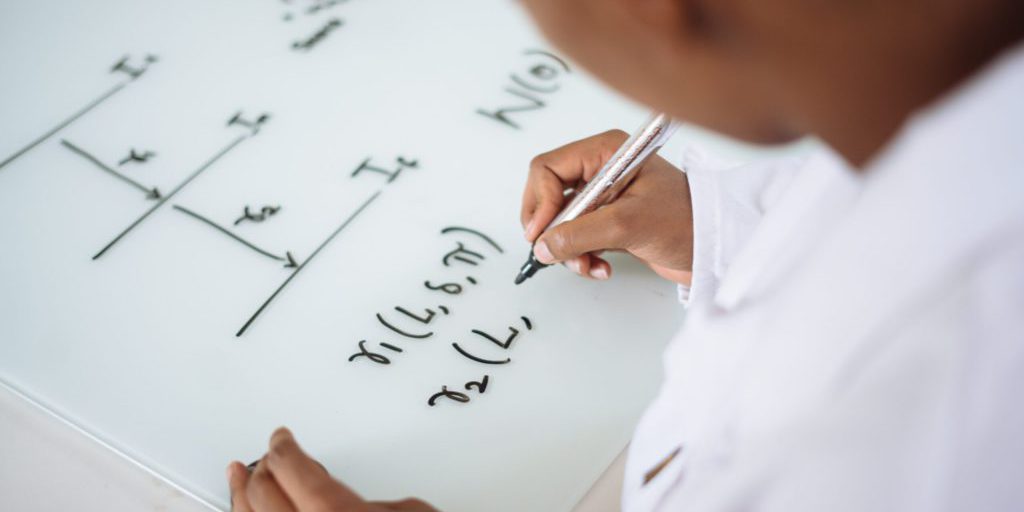Brain is my natural calculator
You have most likely heard about mental math for kids by using Abacus — the ability to do calculations in one’s head — and how important it is for children to learn it.
⇒ Abacus History ⇐
Why is math so hard for some kids?
When kids struggle with math, it doesn’t mean they’re not smart. It also doesn’t mean they’re lazy. In fact, kids who have trouble with math are often trying really hard. Calculations, lengthy procedures get kids tired and struggling with math can make kids feel like they’re not smart and that can take a toll on their self-esteem. Math for kids shouldn’t be a paper pencil thing all the time. There are lot more ways to make it easier for kids, such as practicing on Abacus. Chinese people conquer the math competitions most of the times. Why? are their kids smarter then all or they feed on something special to their kids with algebra and number supplements…lol
Secret is simple but a bit technical. They go through longer calculations, multiplications, division and algebraical processes in seconds mentally. So, the secret is mental maths. Mental math is a group of skills that allow us to do math “in our head” by visualizing Abacus or fingers in mind, without using pencil and paper or a calculator. One of these skills is remembering math facts, like 8 × 5 = 40. Other skills include rounding numbers and estimating calculations.
Let me convince you with some of its benefits. Hope you will help me to absorb it faster.
⇒ Mental Math ⇐
Mental Math is useful in everyday life,
- It can keep kids understand math concepts and solve the math problems faster
- Mental math methods are usually faster than technology—if you have an efficient strategy
- Mental math is useful in everyday life, when technology (and paper) may not be available or appropriate. We discuss examples such as working in a concession stand, finding sale prices at the sale rack, comparison shopping, and so on.
- Mental math is useful for checking or estimating an answer obtained from a calculator (or other technology). Did the fast food restaurant ring up the total bill and change correctly? Is the answer to the homework problem reasonable?
- Being able to do some math mentally leads to fluency and confidence. As with people who are fluent in a foreign language, who can carry on a conversation without stopping to look up words in a dictionary or taking long pauses to compose sentences, those fluent with numbers can engage in the flow of the process of problem solving and move through many calculations mentally— rather than disengaging to manipulate a keypad. Fluency happens in the mind, no matter what the activity, confidence helps students be more successful.
- Mental math methods add connections in the brain that make homework easier and can help make new concepts easier to learn
Chineses Zhusuan
Let me share an important research here,
Chinese Zhusuan is a time-honoured traditional method of performing fast maths calculations with an Abacus. Practitioners can perform addition, subtraction, multiplication, division, exponential multiplication, root and more complicated equations by moving beads along the abacus rods according to defined formulas. Chinese Zhusuan has played a vital role in giving an impetus to math activities, promoting algorithmic practices and fostering intelligence. Zhusuan oral formulas have easy-to-learn rhymes that represent specific calculation rules and summarize the arithmetic operations. Beginners can make quick calculations after some fairly basic training, while proficient practitioners develop an agile mind. Zhusuan is widely used in Chinese life and is an important symbol of traditional Chinese culture, providing a strong sense of cultural identity. It has been handed down through generations by traditional methods of oral teaching and self-learning. Training in abacus-based mental arithmetic is thought to improve a child’s attention span, memory and mental capability. Today, it contributes to the advancement of calculating techniques, cognitive schemas, educational psychology and intellectual development. It also has a far-reaching influence in various fields of cultural creativity, including folk customs, language, literature, sculpture and architecture.
Let me tell you how it works.
Essentially, what we do with variables in algebra is the same as what students can learn to do with numbers in the lower grades. mental math relates to number sense: the ability to manipulate numbers in one’s head in various ways in order to do calculations. And number sense, in return, has been proven to predict a student’s success in algebra.
People with number sense use numbers flexibly. They are able to take them apart and put them together in various ways in order to do calculations. It is quite similar to being able to “PLAY” with words in order to make interesting sentences, or being able to play with chords and melodies in order to make songs.
Conclusion
EVERYONE can learn the basics of it, and it will make learning math and algebra so much easier! We expect our children to learn lots of English words and to be able to put those words together in many different ways to form sentences, so why not expect them to do the same with numbers? And they can, as long as they are practicing how to solve the math problems. So let’s get on to the practical part of this writing: math activities for EVERYONE.
We can make our children learn those tricks which can help them do fast maths. When kids struggle with mental math, it doesn’t mean they’re not intelligent mathematically. Kids develop math skills at their own pace. Difficulty with mental math could be a matter of needing more time and practice to ‘Catch up’. At, EDVON, we have designed the series of Mental Math Courses for Kids to make them comfortable with math by teaching them with fun math activities and a lot of mental math practice.








